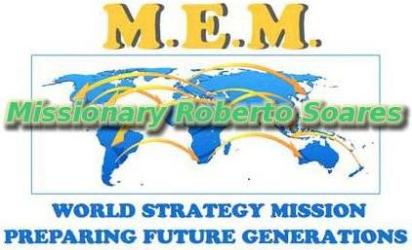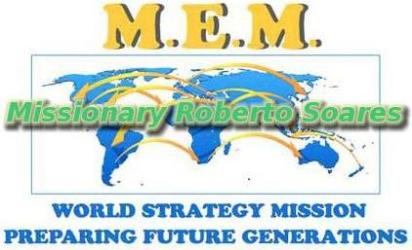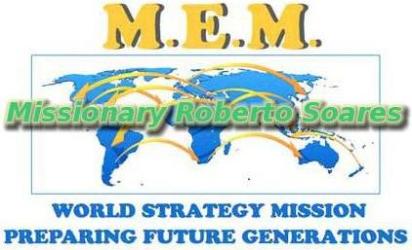I love the character of Hannah, a Godly woman. A woman, like any other in the city, who overcame the greatest crisis of her life, experienced and received a great miracle from God. Through the life of Hannah, mother of the prophet Samuel, learned some important secrets to having a happy and blessed life. In this story, The Lord shows us that if we want a life full of happy and prosperous years, must be passed “time of change”, without which our lives would be limited to a continuous repetition of the same sorrows and failures. Open your Bible in I Samuel 1:1 to 28 and also open your heart to understand the three phases in the life of Hannah:
the years of sadness, the year of change, and the years of joy.
Hannah was the wife of Elkanah, who lived in the town of Ramah around 1170 BC Her husband would contract remarriage to a woman named Peninnah, for being barren Hannah; remarriage was within the possibilities of Elkanah, who sought the implementation of the Code of Hammurabi, a device that has been approved by the Jewish law, according to the book of Deuteronomy, which says: “When a man has two wives, one who loves and one who despises, and loved and despised give him children, and the eldest son is the despised. ” (Deuteronomy 21:15)
Every year the family of Elkanah traveled around 18 km to the town of Shiloh, north of Bethel, to worship and offer sacrifices to the Lord. Elkanah came from a family of high social level and very religious.
In this period there was a tradition among women that she had no sons had a curse upon herself, which made Hannah suffer from pain of bitterness and humiliation, as well as the book of Samuel says: “And she was in bitterness of soul prayed to the Lord, and wept sore And she made a vow, saying:.! Lord of hosts, if thou wilt indeed look on the affliction of thine handmaid, and remember me, and not forget thy handmaid, but unto thy maidservant thou make a son, the Lord I will give him all the days of his life, and upon his head no razor “. (1 Samuel 1:10-11)
One morning the priest Eli, at dawn, he found the woman named Hannah, lying on plates in front of the shrine, just thought he was drunk and rebuked, but Hannah told him she was with bitterness of soul, and he, seeing her face, felt the presence of God in the life of Hannah and prophesied: “Go in peace: and the God of Israel grant thee thy petition that thou hast it.” (1 Samuel 1:17)
That same day, Elkanah knew his wife and she conceived a son named Samuel, which means he was called by the Lord. The curse of Hannah, God turned into a blessing for her and for all the people of Israel.
His blessing was so great that later Samuel was elected by God and by the people as judge and prophet of Israel. The pain, sadness and contempt, God can turn into a blessing, you just believe. Believe … Believe … And accepted because his mercy endureth for ever.
1 – The Years of Sadness (v. 1-8)
Years of sadness of life were marked by Hannah 5 features:
- .Sence of miracles and God’s favor – and v.5b v.6a – Bible says that God had left barren her womb Hannah, so far without what she wanted and asked: children.
- Presence of God’s favor in the lives of people around you – and v.2b v.4 – Beyond the suffering of Hannah not to have children, she still had to live with the fact that her rival, Peninnah had children who she so wanted. One thing is running out of hes miracle, another thing is to see everyone around you getting your wins and only getting you “high and dry”.
- Outrage – v.6 and v.7b – Another feature of these years was the sadness continuous affront Peninnah always did to grieve Hannah reminding her that God refused to give her children while she had them.
- Depression – v.7b and v.8 – the Bible says that the result of outrage Peninnah was that Hannah went into a deep depression, to the point of not eating, not smiling, and just complain and cry day and night.
- Sameness – v.7a – The fifth feature of these last years of sorrow Hannah was the sameness. The story goes that year came and exit year and nothing changed in the life of Hannah Every year was always the same suffering.But to get out of the sameness of years of suffering and sorrow, we must act as Hannah, who in a given year, decided to take some attitudes that have changed for the better throughout the rest of his life.
2 – The Year of Change (p. 9-19)
See what were the 4 attitudes of Hannah that revolutionized his life:
- She began to cry at the right shoulder. Verse 8 says that Hannah wept and complained to her husband Elkanah. But in verse 10, we see Ana was crying and not bothering with God and with people. She redirected her disappointment and went looking for who could really change his story.
- She made a promise to God. In verse 11, we see Hannah telling God that the blessing would she longed for the glory of himself. Before you ask God what he will give us, is that we should tell God what to give him. Hannah redirected her motivation for the blessing. What is the real motivation behind the blessings you ask God? Hannah showed the Lord your Samuel, Samuel would actually be of God, for the Lord he would like it to be weaned. Her victory is also God and seeks only her own benefit and joy?
- She believed the word of faith given by God’s prophet. Verse 18 says the 17th that Hannah believed the word of Eli, and the proof is that she was touched, she began to eat, took a sullen and sad face, and went home relieved. This verse was also impacted and changed the lives of Martin Luther when He was at the height of its crises and struggles. She redirected her faith to believe that those simple words of the prophet of God was, in fact, all she needed to get her miracle. So, believe in the word of life given everyday by imperfect prophets of God who has given about his life!
- She acted. Says the verse 19:20 that Hannah had sex with her husband and then the Lord remembered her and worked the miracle. The text does not say that God remembered Hannah and Hannah then had sex with her husband, but it was exactly the opposite. You know what this teaches us? Do your best, because only then God will work the impossible in your life. Despite believing that his miracle was already underway, Hannah did not fail to do what I could, and so received the blessing of God.
3 – The Years of Joy (V. 21-28 and 2:21)
The years of joy Hannah came as a result of certain attitudes in their year of change. See how was the rest of your life:
- She waited to celebrate at the right time and the right way. Hannah knew there had to get even with Peninnah, she had to get even with the shame that was about it for several years. Our motivation should not be to rub your victory in the face of our “Peninnah”, but in the face of the devil, who is our real enemy.The same place where one day Hannah cried and begged God, it was the same place where she celebrated her victory with the prophet Eli (V.21 23)
- Instead of humiliation and honor. As Samuel turned out to be the spiritual leader of the entire nation of Israel, Hannah lived the rest of her life watching Peninnah and their sons and daughters, together with all Israel, asking for prayer, guidance and blessing of her son Samuel. That which was once considered the despised, lived the rest of her days being honored to be the mother of the most important man of the whole nation.
- Hannah received from God much more than expected: many children! She wanted one and God gave her many, to the point of some biblical commentators say that Hannah ended up having more sons and daughters than Peninnah. That’s how God works, never the eyedropper.
Conclusion:
The characters in the life of Hannah always appear in our lives:
Peninnah – It’s bad but it’s good, because if it was not the shame of Peninnah, Hannah would have died without children. So do not complain of life’s problems, because they are what bring us closer to God and make miracles come true in our lives.
Elkanah – He is the worst of all, because according to him, Hannah did not need to have children and could live as it was. We can not accept the sameness and the blessings of the past. Refuse to live without your Samuel.
Samuel – He is the miracle received and immediately returned to God. Commit to God all his victories.
The children of Peninnah – They are those who have the tendency to envy, but the fund has no biggie. They ended up being irrelevant. Do not cling to useless, peddling and embarrassments of life. Do not envy anybody.
Eli – The prophet of God without any emotion, Hannah offered everything she needed: a simple word of faith! Believe in God’s word. Without it, you’re gone.








